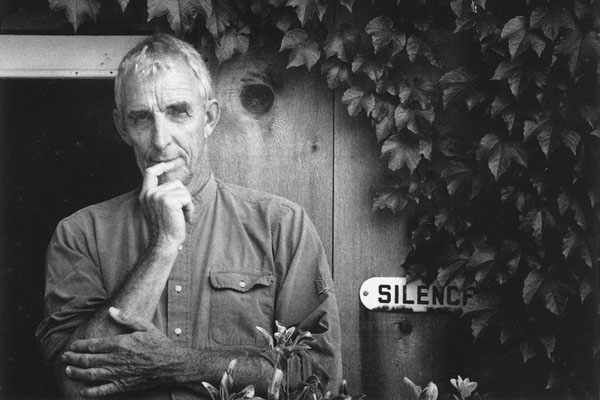“Peter Matthiessen, a roving author and naturalist whose impassioned nonfiction explored the remote endangered wilds of the world and whose prizewinning fiction often placed his mysterious protagonists in the heart of them, died on Saturday,” reports Christopher Lehmann-Haupt in the New York Times. “Mr. Matthiessen was one of the last survivors of a generation of American writers who came of age after World War II and who all seemed to know one another, socializing in New York and on Long Island’s East End as a kind of movable literary salon peopled by the likes of William Styron, James Jones, Kurt Vonnegut and E. L. Doctorow.”
On Thursday, the NYT Magazine published Jeff Himmelman‘s profile of the 86-year-old writer: “Though Matthiessen is not as well known as some other names of his generation, you would be hard-pressed to find a greater life in American letters over the last half-century. He is the only writer ever to win the National Book Award for nonfiction and fiction, but it’s not just the writing: Born into the East Coast establishment, Matthiessen ran from it, and in the running became a novelist, a C.I.A. agent, a founder of The Paris Review, author of more than 30 books, a naturalist, an activist and a master in one of the most respected lineages in Zen.”
The Paris Review has posted an excerpt from Howard Norman‘s interview with Matthiessen, adding that “we have lost a progenitor, a guiding spirit, and a cherished friend.”
Carolyn Kellogg for the Los Angeles Times: “Matthiessen’s particularly long writing career stretched 60 years, from the 1954 novel Race Rock to In Paradise, coming Tuesday…. His notable books include the novels At Play in the Fields of the Lord (1965) and Far Tortuga (1974), the nonfiction work The Snow Leopard (1978) and the omnibus novel Shadow Country.”
The full film is here
At Play in the Fields of the Lord, a tale of gun-runners and missionaries in the Amazonian jungle, was adapted in 1991, when Roger Ebert wrote: “What happens in the material world of this story is not the point; it is a book about how the identities and beliefs of its characters are changed. The film has been produced by Saul Zaentz, an independent producer who seems to seek out ‘unfilmable’ source material… With the Brazilian director Hector Babenco he went into the middle of the rain forest to film on location, and the mood and feel of those real places, the impenetrable, throbbing jungle on either side of the vast indifferent Amazon, is one of the central qualities of his film…. The movie essentially argues that all peoples have a right to worship their own gods without interference, but it goes further to observe that if your god lives in the land and the trees, then if we destroy your land, we kill your god. These messages are buried in the very fabric of the film, in the way it was shot, in its use of locations, and we are not told them, we absorb them.”
Update, 4/7: The Los Angeles Review of Books has posted Alec Michod‘s interview with Matthiessen, conducted in February: “When I asked him which of his novels was his favorite, Matthiessen didn’t hesitate before answering, Far Tortuga.”
For news and tips throughout the day every day, follow @KeyframeDaily on Twitter and/or the RSS feed. Get Keyframe Daily in your inbox by signing in at fandor.com/daily.




